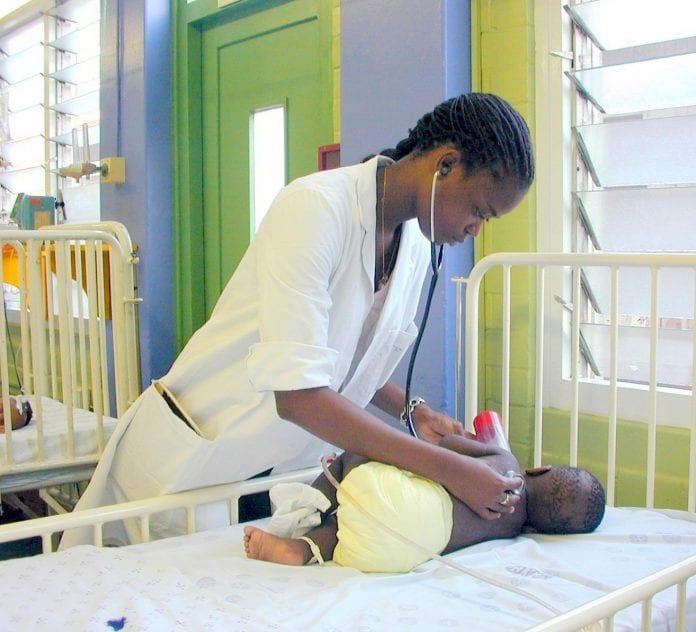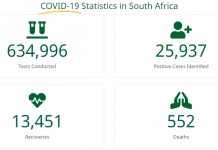The incipient corona virus disease 2019 (COVID-19) pandemic is drawing worldwide attention to a central question: just how resilient must health delivery systems be to handle a sudden and massive influx of very ill patients?
In Ground Zero, the city of Wuhan in China, they built a couple of hospitals in 10 days but not many countries can conjure up construction “armies” in such a short space of time. And there is much more to it than simply erecting a building and beds.
Closer to home, the demand for safe and quality healthcare has become one of the priorities of the South African Government with a view to establishing the National Health Insurance (NHI) system with its grand vision of providing free primary health care to all its citizens.
But can it be done without ensuring that proper standards of care are in place? A few years ago, the Government set up the Office of Health Standards Compliance (OHSC), a statutory body responsible for measuring compliance to the standards set by the National Department of Health. The results have been an eye-opener.
At the last OHSC audit, only five of the 696 public health facilities met standards required for compliance.(See Link).
Wholescale compliance in the public sector seems to be quite a way off. But if everybody in South Africa in the field of quality improvement and accreditation pools their skills and their resources – an “all hands-on deck” approach – who knows what can be achieved?
Working in the background
An internationally recognised non-profit organisation, the Council for Health Service Accreditation of Southern Africa (COHSASA), based in Cape Town has been working in the background for the past 25 years to improve the quality of healthcare provided to patients in a range of healthcare facilities.
Over 600 hospitals, clinics, hospices and rehabilitation units in both the private and public sectors throughout Africa (11 countries to date) have been assessed by COHSASA and many of them have met the standards and achieved accreditation. Some facilities have achieved accreditation several times over which would indicate that quality improvement has become institutionalised in everyday operations.
COHSASA’s authority to evaluate healthcare facilities is internationally recognised. Its Standards for Hospitals, used to measure health facility performance, have been accredited four times (consistently from 2002 to 2018) by the International Society for Quality in Health Care (ISQua).
COHSASA’s most recent edition of standards, the First Edition of COHSASA Standards for Healthcare Facilities (In-Patient and Ambulatory Care), has been accredited by ISQua until 2022.
The global body that oversees quality in health care
ISQua is a global body with over 70 member countries in six continents that drives continual improvement in the quality and safety of healthcare worldwide through education, research, collaboration and the sharing of evidence-based knowledge.
COHSASA has also been formally evaluated as an accrediting body since 2002 and was recently re-accredited by ISQua for a fifth successive time until 2022. COHSASA is currently the only internationally accredited health care facility accreditation body in Africa.
What does this mean?
It means that in a situation where AIDS, TB and other diseases associated with dispossession and poverty have created a heavy burden on our hospitals, and where nurses and doctors are leaving for other countries, the task of improving quality has proven to be difficult but feasible.
In the early 2000s, COHSASA accredited public sector hospitals in South Africa and we found that, although it took much longer for them to achieve accreditation in comparison to a first world private care situation, they did get there in the end. This was partly due to a system COHSASA introduced allowing facilities operating from a lower base to achieve accreditation in a “gradual” journey of accomplishment with different levels of achievement recognised along the way. This acted as an incentive and provided encouragement to poorly resourced facilities.
COHSASA continues to provide quality improvement and accreditation programmes throughout Africa.
The how
How does COHSASA do this? The Council deploys assessors who visit the hospital and conduct an evaluation to measure how the hospital shapes up against quality standards. The most important problem areas are identified so that hospital staff can begin working immediately on those areas that may pose harm to patients and/or have legal implications. Once all the critical areas have been addressed, the hospitals put systems and procedures in place to ensure that the hospital runs as efficiently as possible and that all departments work together in harmony. While this process is going on, COHSASA facilitators, specially trained doctors and nurses, are readily available to assist where necessary.
Does it work?
An increasing number of studies show the benefits of accreditation and it is both a logical and safe assumption that when medical interventions are performed by competent individuals, using appropriate, regularly serviced equipment in standard procedures regulated by written policies, risks are reduced, and outcomes are enhanced.
While the jury is still out, peer-reviewed articles – particularly in the past decade – increasingly point to the benefits of accreditation.
Benefits to patients
Before your doctor sends you for an operation at the nearest hospital, and if you can do so, check that the hospital is accredited by a credible healthcare accrediting body.
There are some values attached to accreditation that cannot be quantified but only assumed. Medical error, as the South African public sector – particularly – has found of late, carries a high financial cost with billions wasted on medico-legal disputes.
By establishing the proper systems required for compliance with standards of safety in both administrative and clinical operations in a healthcare facility, accreditation may indirectly contribute towards preventing error. On that basis, the value of accreditation is incalculable.
If you are not sure what facilities have received the stamp of approval, go to this link and check.
If you want to ensure that when you travel throughout Africa that you will be receiving the best possible care, look at this link.
















